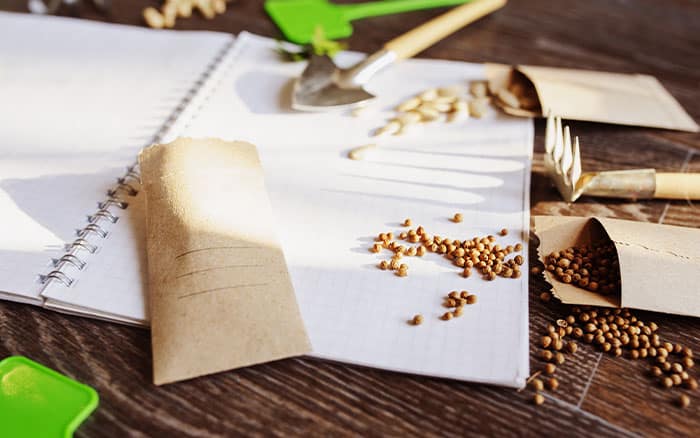Getting into the habit of keeping a garden journal is a great way of keeping track of your gardening, whilst also giving your future-self tips and tricks that are specific to your own garden.
You can learn plenty about gardening from parents, family members, neighbours, community members, books, and the internet nowadays. But what experience is better than first-hand experience? Whether you are new to gardening or are a greenfingered guru, keeping track of the goings on in your garden can be incredibly helpful.
Keep track
The joy of journaling your garden journey is that you can make it perfect for you. However, there are some basics that I recommend recording.
Monitor the dates that you sowed seeds, potted on, and planted in their final spots.
It could help to draw diagrams of your garden or vegetable patch, labelling where you grew each crop.

This will help to keep up with which crops were grown where. Doing this will help with crop rotation and determine which plants are grown in that spot next year.
If possible, keep tabs on when you planted, watered, fed, pruned, or harvested the plants in your garden. Then, when looking back you can clearly see how often you performed certain tasks and how often.
In our gardens we have control over some things, however we don’t have control over the weather. One year we may have a scorcher of a summer and a mild winter, and the next we might have a sweltering spring and bitterly cold and long winter. So, I recommend including a simple summary of the weather too, just to know the conditions that your plants were growing in.
Success and failure

As well as tracking what, where and when you planted, keep note of what has gone well and what hasn’t. If you’ve had any big successes such as a large crop, or a well-spread harvest, journal the steps you took to get these results.
Doing this will help you make decisions about whether to repeat the same methods or tweak it a little.
Whether you keep a physical journal or a digital one, you can attach photos, so you have reference points to compare with. This is a great way of seeing how your garden and plants develop and assess how they are different year-on-year.
Formats for you
There are no rules with garden journaling, so there are plenty of ways to do it to suit you. Whether you are a computer whizz and prefer to keep a spreadsheet of your garden or prefer a notebook to scribble in – that’s just fine!
You can get project notebooks with spiral binding that are split into sections that you can dedicate to different segments; ‘seeds’, ‘vegetable patch’, ‘flower beds’, ‘sketches’.

Another option is to get a small ring binder, so you can insert pages as and when you need to add to certain parts. Alternatively, there are many garden journals available that are pre-formatted to give you a helping hand.

Leave A Comment